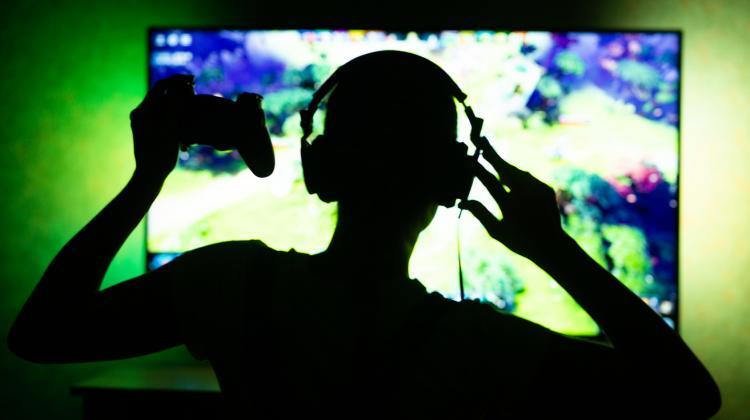Games - a space for literary studies
 Photo: Fotolia
Photo: Fotolia
Many games form a complex imaginarium of culture, and talking about playing games being a waste of time is an abuse, says Dr. Piotr Kubiński from the University of Warsaw, a game researcher.
"Games change our perception of the world. Just like any new medium, they change our view of reality. Narration in a game can take a different shape than in literature or film. Tools of literary studies allow to effectively explore these narratives, they are suitable for interdisciplinary research" - says Dr. Kubinski from the Institute of Polish Literature, who professionally deals with games.
GAMES BASED ON BOOKS. OR VICE VERSA
In his opinion, this is a very interesting area of research. Game developers have new capabilities not available in older media. In addition, new cultural texts are often created based on games - comics, books, films. The Assassin`s Creed franchise is a good example.
"Plots are not always based on literature. Many games do not refer to cultural texts. New worlds are often created within the game, and stories continue outside of the game - in books or movies. Games mix with other forms of culture. Game creators use the achievements of older media, but other artists are also inspired by games" - explains the researcher.
Piotr Kubiński admits that, just like part of literary and film works, many games do not deserve much attention. But he is convinced that the presence of games has a huge impact on other cultural texts. In his opinion, within the games there are "absolutely amazing formal and artistic experiments". One of his favourite games is "The Stanley Parable", which plays with its own form and experiments with the limits of narrative possibilities of the medium. This is an extremely interesting space for a literary scholar.
GAMES ARE A WASTE OF TIME? NOT AT ALL
In his research, Dr. Kubiński devoted a lot of attention to The Witcher. He emphasizes that this is not just a game, but entire "universe" composed of books, films and games that use Polish themes in a special way.
"The strategy of creators of the game series +The Witcher+ is similar to Andrzej Sapkowski`s strategy, who makes references to various texts, fairy tales, and classic literature. For example one of the Witcher 3 missions is almost entirely based on Adam Mickiewicz`s Forefathers` Eve" - notes the literary scholar.
He emphasizes that game developers refer to the pre-Christian culture of the old Slavs. "What we know about the ancient Slavonic culture and beliefs is largely known from the writings of those who Christianised the lands of Slavonic tribes. It is a negative message. We also have few material remnants of religious worship. Our present vision is additionally filtered through romantic, 19th century interpretations. The creators of the Witcher series use this fact in a very interesting way" - says Dr. Kubiński.
He emphasizes that in order to explore the entire story content of the game, it is necessary to spend well over one hundred hours. Only then can you taste the references to Vladimir Nabokov`s novels, the stories of Edgar Allan Poe, popular movies, horror movies, comedy.
"This is a complex imaginarium of culture. In this context, talking about wasting time on playing games is an abuse" - says the literary scholar who himself is treated with slight disregard in university circles due to the subject of his research. The scientist says that likes to refer to Johan Huizinga, who in the 1930s proved in the book Homo Ludens that culture has always been and is funded on the play element.
THE SPACE OF FREEDOM
"Play is absolutely fundamental to culture, and it is false to create an opposition between play and seriousness. For me, paradoxically, play is a real space of human freedom, and it is impossible to deprive a man of it. Even those imprisoned in concentration camps write in their memoirs that in this most terrible place on Earth, they were able to create a space for play. People can be entertained even in the very realm of the intellect. At the same time, if someone forces us to play, this activity is no longer fun. Real play is the sphere of free will and freedom that nobody can take from us" - the researcher says.
PAP - Science in Poland, Karolina Duszczyk
kol/ zan/ kap/
tr. RL
Przed dodaniem komentarza prosimy o zapoznanie z Regulaminem forum serwisu Nauka w Polsce.














